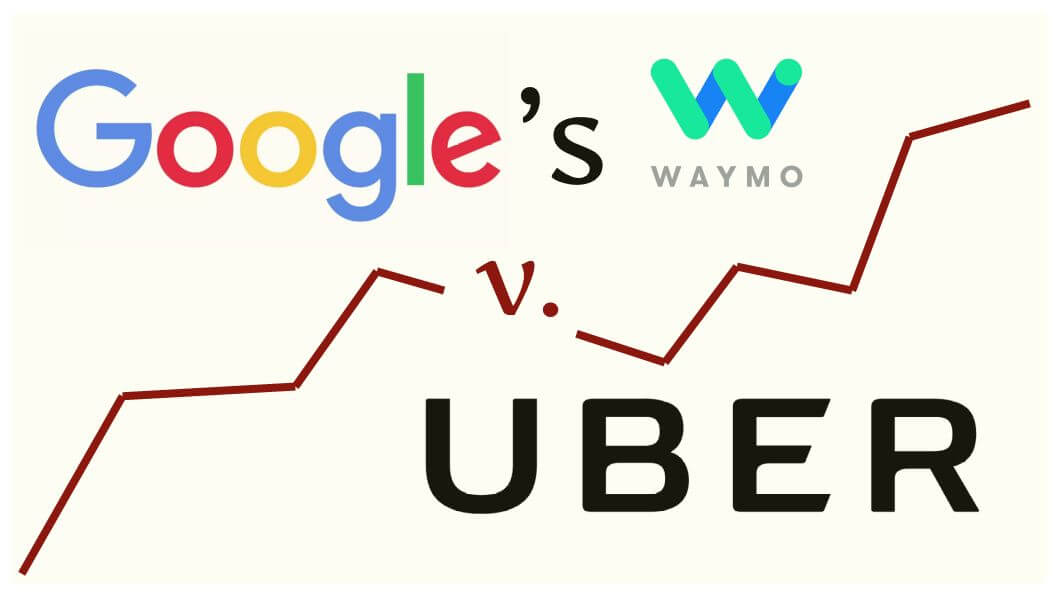Lately, the automotive industry is under a fierce competition for developing autonomous (self-driving) vehicles. Automotive companies around the world, including GM and Ford of North America; Daimler, BMW, VW Group of Europe; Toyota of Japan; and Hyundai Automotive Group of South Korea, are just a few examples, and technological innovations to enable autonomous vehicles are brought about in Silicon Valley as well.
Hence, it is not a surprise that the intellectual property (“IP”) lawsuit between Google and Uber, who are leading the research and development of autonomous vehicles in Silicon Valley, caught the public’s attention. Google, through Waymo (an autonomous car development company owned by Google’s parent company Alphabet Inc.), alleged that a former engineer of Google stole a large amount of computer files containing trade secrets and illegally provided them to Uber.
Stealing technologies, know-hows, and customer information from competitors through industrial espionage or other illegal means are hardly new. However, the scope and extent of the damages that can be done by those illegal activities are ever increasing due to the advancement of data storage technology. News coverage on the issue is somehow limited to high-tech espionage across the borders like the semiconductor trade secrets sold to China, but the problem is not limited to big corporations or within the high-tech industry.
For example, a design and specification of a new product, customer information, or production or purchasing information can be stored in a USB thumb drive and handed over to a competing business, which results in a substantial profit loss to a company or business owner. It is typical to have a non-disclosure agreement with employees for a relatively large company, but even without a non-disclosure, confidential information that has an economic value of its own can be protected by the trade secret law.
Last year, the Defend Trade Secrets Act of 2016 was enacted by the federal government, which is likely to bring many positive changes.
An example of such change is the lawsuit between Google and Uber. This lawsuit is one of the first trade secret infringement lawsuits brought under the federal law and will likely become a precedent that could affect many cases to follow if it goes to the trial. Here comes the summary of the case.
-
First, Google learned from its supplier that Uber's LiDAR design is strikingly similar to Google's patented technology. Autonomous vehicles recognize their surroundings through a LiDAR, which stands for Light Detection and Ranging.
-
Google secured a forensic evidence that a former engineer, who now works at Uber, downloaded a large quantity of computer files related to the LiDAR technology while he was still working at Google.
-
In response, Uber claimed that it developed its LiDAR technology independently, but without a hard evidence to support the claim, the evidences are in favor of Google's claim of trade secret infringement.
If Google prevails in the lawsuit, the court may issue an injunction that forbids Uber from utilizing the LiDAR technology, which would likely hamper Uber’s development of a self-driving car. Considering the economic value of the LiDAR technology, which is said to be more than a billion dollars, the monetary damages can be a considerable burden to Uber. In addition, depending on the results of a separate criminal trial, the engineer can face an imprisonment up to ten years or heavy fines.
Now, what would be the lesson for the beauty supply industry that can be learned from the Google vs. Uber case? You look at IP litigations worth billions of dollars or the litigation cost over millions of dollars let alone the cost of security systems to protect trade secrets, and you quite reasonably think you cannot afford a trade secret. Nevertheless, there are measures you can take to have your sensitive information protected as a trade secret at almost no cost.
First, you need a thoughtfully drafted confidentiality policy such as “the customer list and the pricing information of products are confidential and must be disclosed only to the owner and the manager during two years from the creation of the relevant information.” You will not prevail at the court with an overbroad policy statement like “everything related to the business is confidential.” By simply placing a policy statement on the first page (or header/footer) of relevant documents, you can officially set forth the policy.
Second, work computers and storage devices such as laptops and flash drives must be owned by the company, and you should restrict the use of employees’ personal devices or accounts to access or store company data. Without such policy, it would be hard to pinpoint the records of access and download related to illegal activities.
Third, when you notice a breach of confidential information, you should preserve the evidence and report to the authority as quickly as possible. (Reference: Reporting Intellectual Property Crime) You will need to file a civil action against the perpetrator for an injunction or to claim monetary damages, but individuals and organizations who misappropriate a trade secret with a criminal intent are also subject to criminal penalties.
It is already proven by the experience of many companies and security experts that you can greatly reduce a trade secret infringement by educating employees about the seriousness of the offense and spending a reasonable time and effort to secure your confidential information.

